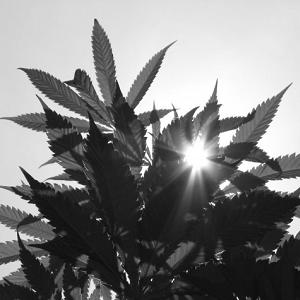 My colleague Anthony Johnson has already written up an excellent piece on God, Jesus & Cannabis: a Holy Trinity? The First Amendment on Trial, detailing the cruel imprisonment of Roger Christie of the Hawai’i THC Ministry. What I found interesting was the analysis of the case by Douglas Laycock, a constitutional law professor at University of Virginia. Mr. Christie will be basing his appeal on the Religious Freedom Restoration Act (RFRA), a Clinton-era law that provides some measure of protection for religious uses of forbidden sacraments. The RFRA has been used successfully by adherents of native religions who use peyote or hoasca, both powerful hallucinogens that are Schedule I drugs – dangerous drugs with no medical use, as the government mistakenly classifies cannabis. Interestingly, Prof. Laycock told the New York Times the following:
My colleague Anthony Johnson has already written up an excellent piece on God, Jesus & Cannabis: a Holy Trinity? The First Amendment on Trial, detailing the cruel imprisonment of Roger Christie of the Hawai’i THC Ministry. What I found interesting was the analysis of the case by Douglas Laycock, a constitutional law professor at University of Virginia. Mr. Christie will be basing his appeal on the Religious Freedom Restoration Act (RFRA), a Clinton-era law that provides some measure of protection for religious uses of forbidden sacraments. The RFRA has been used successfully by adherents of native religions who use peyote or hoasca, both powerful hallucinogens that are Schedule I drugs – dangerous drugs with no medical use, as the government mistakenly classifies cannabis. Interestingly, Prof. Laycock told the New York Times the following:
“The difference is that peyote and hoasca have little or no recreational market, and that is not likely to change because they make you sick before they make you high. Marijuana has a huge recreational market. Diversion from religious to recreational uses, and false claims of religious use, would be major problems.”
According to the RFRA, the government must have a “compelling interest” to “substantially burden” the free exercise of religion as guaranteed by the First Amendment. Preventing members of a religion from using their holy sacrament is definitely a substantial burden. For instance, we substantially burden the followers of, say, Cthulhu* by forbidding them from practicing virgin sacrifices, because the government has a compelling interest to prevent murder.
In the case of sacramental cannabis, the government’s compelling interest is the enforcement of the Controlled Substances Act, that law that makes cannabis illegal for anyone to use any time for any reason. Yes, cannabis, peyote, and hoasca are all Schedule I, but the peyote and hoasca make you puke violently and are only used by small, readily identifiable sects of true believers. If Uncle Sam turns a blind eye when some natives visit the spirit realm, that’s not likely to lead to teenagers taking peyote trips and drinking hoasca tea after school at 4:20pm.
But if Uncle Sam allows the Roger Christies, the Rastafarians, and the Coptic Christians to use cannabis without repercussions, there will be twenty million suddenly religious pot smokers in America and enforcing the Controlled Substances Act against marijuana will be nigh impossible.
So, as sacraments go, cannabis is just too mild and too popular to pass Constitutional scrutiny. I wish Roger Christie all the luck in the world, but so long as the Controlled Substances Act exists and cannabis is in Schedule I, I cannot see how a RFRA appeal can ever be successful.
This case just highlights a larger issue in cannabis activism: the seeking of exemptions to criminal penalties for certain reasons, rather than the seeking of the right to use cannabis, period. So long as we fight for exemptions, like freedom to use cannabis if we have a certain ailment or freedom to use cannabis if we follow a certain belief, we tacitly approve of two assumptions – 1) someone has the right to judge whether we get to use cannabis and 2) cannabis use without ailment or belief is somehow wrong.
*Cthulhu is a fictional cosmic entity created by horror author H. P. Lovecraft in 1926. I use it in place of real religions to avoid offense.
Source: National Cannabis Coalition – make a donation


